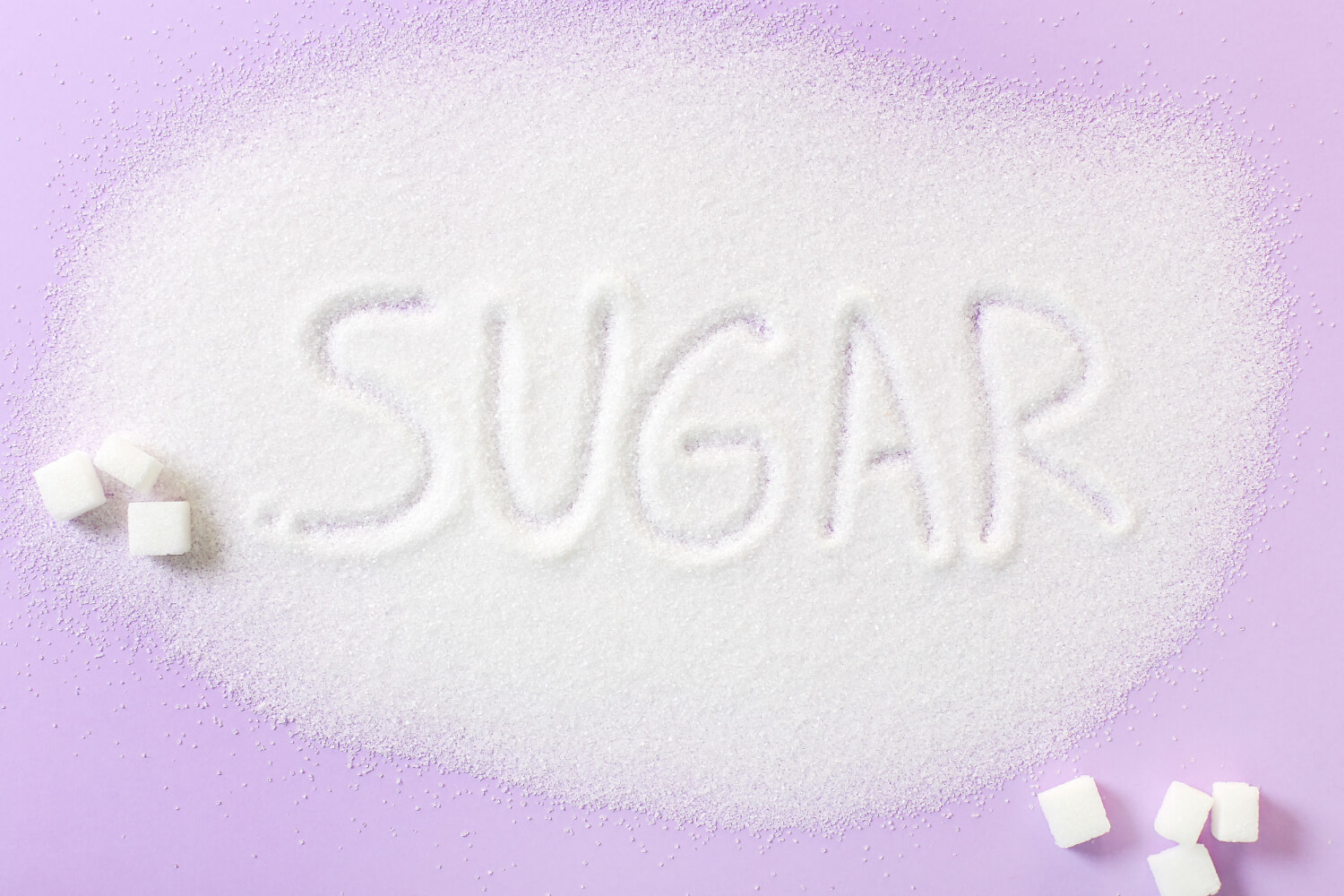11 Reasons Why Sugar is called White poison
Sugar, with its sweet and tempting taste, has been a staple of our diets for centuries. It’s added to our morning coffee to make it sweeter, improves the flavor of desserts, and is hidden in lots of processed foods. Sugar, also known as the “white poison,” has received much attention in recent years because of its possible health hazards. 11 Reasons why sugar is called white poison are – Obesity, Insulin Resistance, Heart disease, Liver overload, affects hormones, inflammation, dental decay, addictive, hidden sugar, impact on mental health and economic cost. In this article, we’ll look in detail 11 reasons why sugar is called “white poison,” as well as its history and the science behind its harmful effects, to better understand the complex connection between sugar and our health.
The Sugar Landscape

Before getting into the 11 reasons why sugar is called “white poison,” it’s crucial to first understand the sugar landscape. The sugar landscape, which includes both natural like fructose found in fruits and lactose found in milk, and refined sugars such as sucrose and high fructose corn syrup (HFCS), is a complicated and diverse subject, with refined sugars sometimes labeled as “white poison” due to potential health hazards.
Refined sugar, a sign of wealth and privilege, is primarily produced from sugar cane and sugar beets. Sugar became more widely available as a result of the Industrial Revolution’s improved efficiency in sugar production. This trend continued into the 20th century, accelerated by the growth of processed food.
Sugar’s Nutritional Profile
To comprehend why sugar is called “white poison,” it’s important to look at its nutritional profile. Sucrose, a basic form of sugar, contains calories but lacks essential nutrients like vitamins and minerals, making it a low-nutrient food source. Approximately 4 calories are present per gram of sugar.
Modern diets heavily rely on dietary sugar sources like sucrose, high fructose corn syrup, honey, and fruit juices, which are commonly found in various foods and beverages.
Whole foods are a natural source of natural sugar, providing fibre, vitamins, and minerals, but processed food’s added sugars are causing concern among the health community.
Reasons: Why Sugar is Called “White Poison”
The alarming nickname “white poison” is not without reason. Sugar’s negative impact on human health has become increasingly clear as a result of substantial scientific studies. Here are some strong reasons why sugar has earned its alarming nickname:
- Obesity: According to a study published in 2022, sugar is the primary cause of obesity /overweight in Sugar-Sweetened Beverages (SSB). Sugary foods, high in calories but lacking nutrients, have a close connection to obesity. Fructose, a key component in high-fructose corn syrup and sucrose, contributes to weight gain and visceral fat, increasing the risk of metabolic disorders and increased risk of diseases like type 2 diabetes and heart disease.
- Insulin Resistance: Insulin resistance, a disease where cells fail to respond adequately to insulin, is a significant issue in diabetes. Increased sugar consumption leads to chronically elevated blood sugar levels, causing stress on insulin-making cells, thereby worsening the condition.
- Heart disease: Heart disease, the leading cause of mortality worldwide, is primarily caused by excessive sugar intake, which is linked to obesity, high blood pressure, and high triglyceride levels.
Consuming excessive sugar can lead to chronic inflammation, a significant risk factor for heart disease, causing blood vessel damage, plaque formation, and increased heart attacks and strokes.
- Liver Overload: According to research published in 2018, an increase in the consumption of sugar and high-fructose corn syrup (HFCS) appears to play a significant role in the development of non-alcoholic fatty liver disease (NAFLD) by promoting de novo lipogenesis and blocking β-fatty acid oxidation.
Overeating sugar leads to Non-Alcoholic Fatty Liver Disease (NAFLD), a condition closely linked to insulin resistance and obesity, which can progress to more severe liver disorders if untreated.
- Effect on Hormones: Consuming Sugar, particularly fructose, can alter hormone regulation, impacting critical hormones such as insulin, leptin, and ghrelin, all necessary for appetite and metabolism.
Leptin resistance, a condition produced by chronic sugar consumption, affects the body’s reaction to hunger, ultimately results in overeating and weight gain. Ghrelin, the hunger hormone, promotes appetite, and a high sugar intake might boost hunger levels.
- Inflammation: Chronic inflammation can be brought on by a high sugar intake, and this inflammation is linked to a number of illnesses, including as arthritis, cardiovascular disease, and autoimmune disorders.
- Dental Decay: Sugar is a major cause of tooth decay. Our oral bacteria consume sugar, generating acids that destroy tooth enamel. This procedure can result in cavities and dental decay over time. Children who consume sweetened foods and beverages are especially prone to tooth decay, which can have long-term effects on oral health.
- Addictive Properties: Sugar’s potential for addiction is one of the reasons it is frequently called “white poison.” Sugar activates the brain’s reward system, causing a release of dopamine, a neurotransmitter related to pleasure and reward. Consuming sugar frequently over time might eventually desensitize this reward system, resulting in cravings and a desire for even more sugar. This could result in a vicious cycle of overconsumption.
- Hidden Sugar: Hidden sugars in processed foods and beverages, also known as “white poison,” pose a serious health concern. These added sugars, which are commonly known as high fructose corn syrup, maltose, and sucrose, make it difficult for users to control their sugar intake, even in supposedly nutritious items such as yogurt and salad dressings.
- Harmful Effect on Mental Health: A growing body of research indicates that excessive sugar consumption may have negative impacts on mental health. According to certain research, excessive sugar intake is associated with an increased risk of anxiety and depression. High sugar intake can cause blood sugar levels to fluctuate quickly, which can cause irritation and mood swings.
- Impact on Economic Costs: Sugar consumption has substantial health and economic consequences, burdening healthcare systems and lowering productivity. Significant financial resources are needed for managing conditions like obesity, diabetes, and heart disease. Individuals’ ability to contribute to the economy decreases as they battle with health-related challenges.
Also Read | How safe are Paper Coffee Cups
Tips to Reduce Sugar Intake
Sugar consumption must be strictly limited in order to preserve overall health and avoid associated health hazards. Here are some helpful hints for lowering your sugar intake:
- Limit sugary drinks: Sugary drinks such as soda, fruit juices, and energy drinks should be reduced or eliminated from your diet. Instead, drink unsweetened beverages, water, or herbal tea. The American Heart Association advises most adults to limit their daily added sugar intake to no more than 100–150 calories (25–37.5 grams), or around 6–9 teaspoons.
- Choose whole foods: Whole foods including fruits, vegetables, lean proteins, and whole grains should make up the majority of your diet. Although these foods naturally contain some sugar, they also offer fiber and important nutrients.
- Check the food labels: Look for hidden sugars on food labels and choose items with little or no added sugar. Sugar is included on food labels under a variety of titles, making it difficult to identify and reduce intake. Sucrose, Glucose, Fructose, High Fructose Corn Syrup (HFCS), Corn Syrup, Agave Nectar, Brown Sugar, Cane Sugar, Honey, Maple Syrup, and Molasses are a few common names for added sugars.
- Cook at home: Making food at home gives you control over the ingredients and sugar levels.
- Use natural sweeteners sparingly: If you need to sweeten foods or beverages, use natural sweeteners like stevia, erythritol, or xylitol sparingly. These sugar substitutes include fewer calories and have a lower glycemic index than table sugar.
- Limit dessert consumption: Instead of making sweets and sweet treats a regular habit, save them for special occasions.
- Educate yourself: Find out where hidden sugars come from and practice mindful consumption when going grocery shopping or eating out.
Conclusion
Sugar, also known as “white poison,” has been linked to a variety of health problems, including obesity, diabetes, heart disease, and dental problems. Making informed food decisions requires knowledge of its effect on hormones and addiction. Sugar reduction, whole food selection, and reading label can all help to improve overall health.
FAQs (Frequently Asked Questions)
Q. Is all sugar bad for you?
A. Not all sugar is harmful for you. Natural sugars found in fruits and vegetables contain fiber, which slows sugar absorption, making them a healthier alternative compared to refined sugars.
Q. How much sugar is considered excessive?
A. According to the American Heart Association, added sugar intake should be limited to 100–150 calories (or 25–38 grams) per day for both men and women. However, for optimum health, aiming for little to no added sugars is best.
Q. Can I quit sugar altogether?
A. Sugar’s widespread presence in food can rendering complete staying away from it difficult. Instead, concentrate on decreasing added sugars and choosing healthier alternatives.
Q. What are the common hidden sources of sugar?
A. Salad dressings, sauces, flavored yoghurts, granola bars, and even drinks like fruit juices and sports drinks that can seem healthy are frequently hidden sources of sugar.
Q. How can I overcome sugar cravings?
A. To prevent sugar cravings, try gradually limiting your sugar intake, staying hydrated, eating fiber-rich foods, and getting frequent exercise. When necessary, use natural sweeteners such as stevia or monk fruit.
